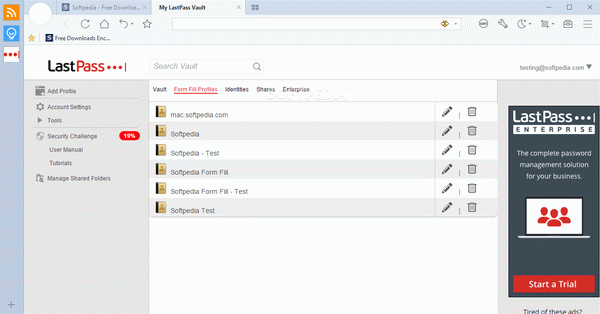If you access various online contents using your computer on a daily basis, you might want a quick and safe way to store the credentials, so you don't have to remember or type them every time you need them.
In this situation, you can turn to specialized software solutions such as LastPass, that can help you store and manage your accounts without significant efforts.
Please note that this version of LastPass is an extension for Maxthon, so it goes without saying that you need to have the corresponding browser installed on your system before you can deploy LastPass for Maxthon.
The next step would be either navigating to the product's page on your browser or double-clicking the downloaded extension file from your computer, as the rest of the process unfolds automatically.
After installing it, you might have a little trouble locating this extension, since the sidebar isn't enabled by default in Maxthon. However, you can turn it on by accessing the main menu and toggling its visibility from the "View" menu.
Clicking the extension's icon in the sidebar displays a menu where you can explore the apps' main features, such as your vault, the websites you've saved data for, forms that you've previously filled, secure notes and matching sites.
If you need a quick, efficient way to generate a password on the go, this extension can help you do that as well. You just need to head to the "Generate Secure Password" section and follow the instructions.
You can also configure a few parameters such as setting the extension to automatically log out when all browsers are closed, enable or disable notifications, set hotkeys and adjust a bunch of account settings.
All in all, if you need a quick way to manage and store your credentials, you might want to try LastPass for Maxthon, as it provides you with a broad range of useful features.

Ramon
Thanks for LastPass for Maxthon crack
Reply
Sávio
thank you soooo much
Reply
Saverio
terima kasih untuk nomor seri untuk LastPass for Maxthon
Reply
Amadeu
i love your site, you are amazing
Reply